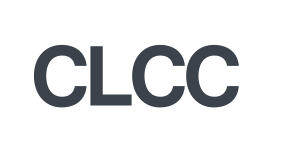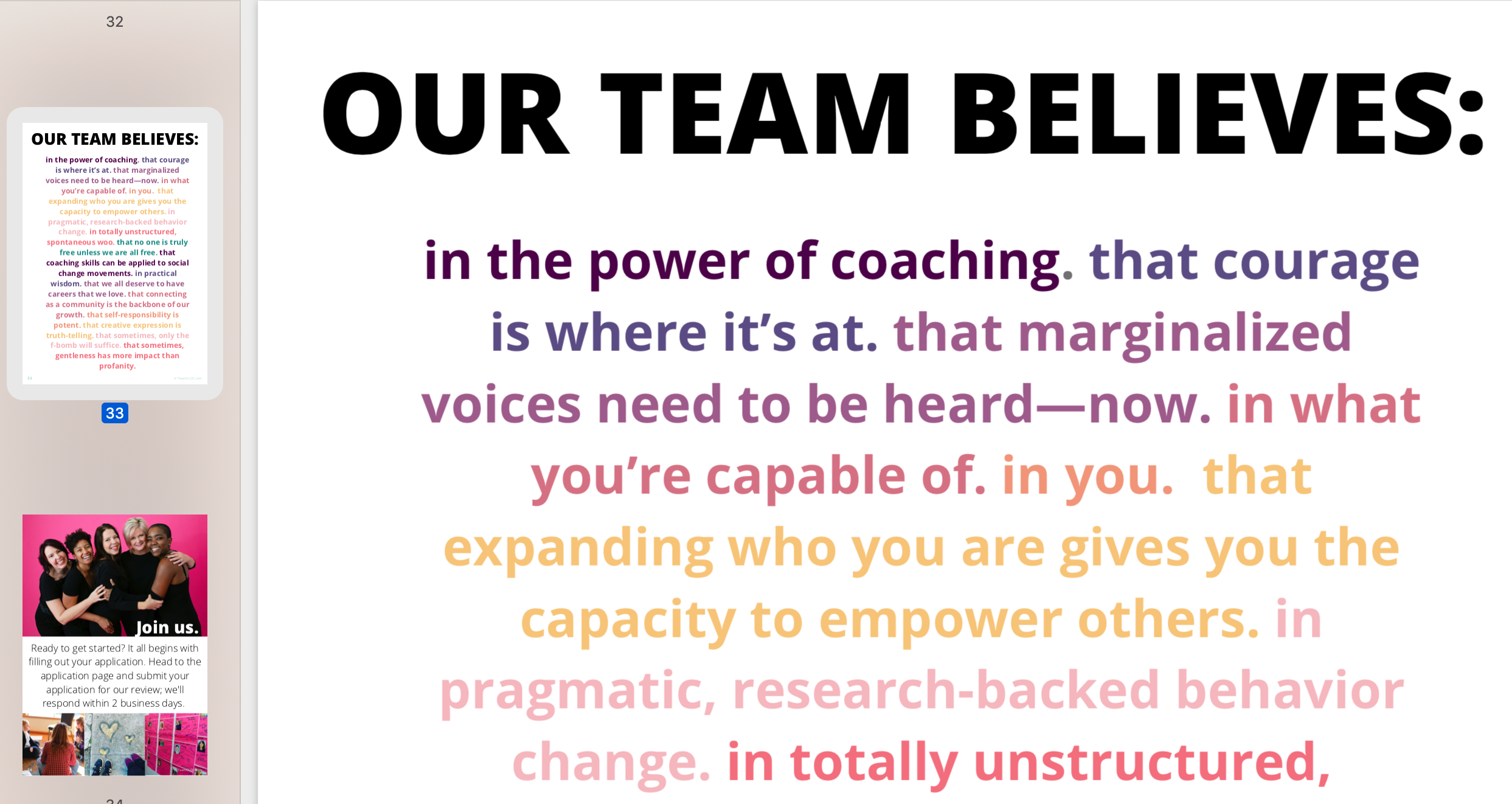Coaching and Intersectionality
Should coaches be intersectional? It’s unfortunate that this is a question that even needs to be asked. Among the many ideas in self-help or coaching that the Team CLCC organization doesn’t agree with, the idea that you treat all clients like a blank slate, paying no attention to the intersections they bring with them, is at the top of the list. Yes, coaching and intersectionality matter, have always mattered, and will continue to matter.
Right now, so many organizations are sending out emails that effectively say, “Oh, wow, we’re waking up to the fact that people suffer in the world, and moving forward, we’re going to do better.”We’d like to let everyone know not just what TeamCLCC will be doing, but what we ALREADY have been doing. We’d like to let you know this because we hope you’ll join us in shifting things for the greater good. Action items are included here for coaches, for each of these.
First: check out the last pages of our TeamCLCC course catalogue. It speaks to what we stand for. “Our team believes…in the power of coaching. that courage is where it’s at. that marginalized voices need to be heard—now…that no one is truly free until we are all free. that coaching skills can be applied to social change movements…” We didn’t add this page for optics when oppression was hitting mainstream news. This message has been in our catalogue for several years, now. We added this page because it's the way of being that we consistently strive for (and while we acknowledge and take ownership of mistakes, we will never give up on these ideals).
Actionable step for you, as a coach: Are you making your values visible to others, so that they understand they have your support if they want it?
Second: Last year, we debuted an internal program only for our CLCC participants/grads called “Helping the Helpers.” What does this program do? In essence, there are multiple non-profit organizations out there who have support staff and employees burning all cylinders to keep things moving. They’re stressed out, facing compassion fatigue, and often there’s no money in those organizations to hire coaches or other forms of support. TeamCLCC put two and two, together: we’ve got a family of CLCC coaches with big hearts and a desire to help. Why not see if education and non-profit organizations might want to have their support staff receive low-cost coaching from our coaches? We were thrilled to begin working with organizations like Safe Place International, which helps LGBTQIA+ refugees who have been displaced, who wouldn’t otherwise be accepted at refugee camps around the world, get the love and resources they need. Offering coaching to their staff is just one tiny piece of trying to help them do their needed work in the world.
Actionable step, for you as a coach: How can you make coaching more accessible to those who need it?
Three: We don’t want to put education on the backs of those already struggling with day-to-day oppression—self-education is critical for this work. WE as individuals are responsible for unpacking our conditioned oppression and belief systems. Every person who has joined the CLCC Leadership Team of mentors and facilitators has been given the book, “So You Want to Talk About Race” by Ijeoma Oluo. We’ve been doing this for the past several years, so that each person we onboard to be in a leadership position has at least some resources to dive into their own conditioning and unearth any hidden biases that they might bring.We also integrated Sonya Renee Taylor’s brilliant book, The Body is Not An Apology, into our CLCC curriculum for all trainees, asking them to think about unpacking their own intersections as well as bring more awareness to client intersections. And starting with our training retreat in January of each year, we begin talking about intersections with an exercise that we call “The funnel,” in which we share what a client’s presenting issue might look like and ask trainees to think about the multiple personal, societal, and systemic issues that might be contributing to that one problem. The purpose of this exercise? Ask our coaches to think beyond just the client’s presenting issue.
Actionable item for coaches: Are you doing your own anti-oppression work? And, importantly, are you doing it without centering yourself or being performative?
Coaching and Intersectionality : It's not a checklist
Again, these are things we started doing years ago, not just recently. **This information about what TeamCLCC is not a pat on the back, either.** We are continually asking ourselves what more we can be doing. Our curriculum is never finished. We evolve it and refine it further, each year. Coaching and intersectionality is not a checklist where you tick items off, and then you're "done."
No Bypassing
To be clear: racism is not just a human idea that needs to be bypassed with a model for shifting your human thoughts. It’s a systemic issue that requires both personal and collective unpacking. Oppression takes many forms, from political to economic to gender inequity, to discrimination based on religion, sexual orientation/gender identity, citizenship status, exposure to trauma, economic models that routinely disenfranchise people, and so much more.
Cognitive reframing is a powerful psychological tool to help reduce anxiety, and this has borne out clinically in several studies. However, it’s not a panacea, and no tool should be dogmatically applied. And, of course, it’s important that coaches using cognitive reframing truly understand how that tool works, because it’s not as simple as talking yourself out of what you feel or slapping a glittery affirmation on something. If that’s what you were taught in your training, please pause to see what pieces are helpful and which pieces need to be un-learned.
If you truly believe that your clients need to live better lives, and if that is your passion as a coach, we hope you’ll join us in looking at some of these action steps.It has been important for TeamCLCC to integrate the conversation around anti-oppression work into our training as part of the coaching curriculum, not co-opt it. For those who have long been doing this work, we want them to be supported in their livelihood and make them more visible as change-makers. So, we also want to highlight the people we refer others to, such as Desiree Adaway (https://adawaygroup.com/freedom-school/) and Andrea Ranae Johnson (https://www.andrearanae.com/makechange) and Mama J Love (https://mamajlove.com/resources/).


